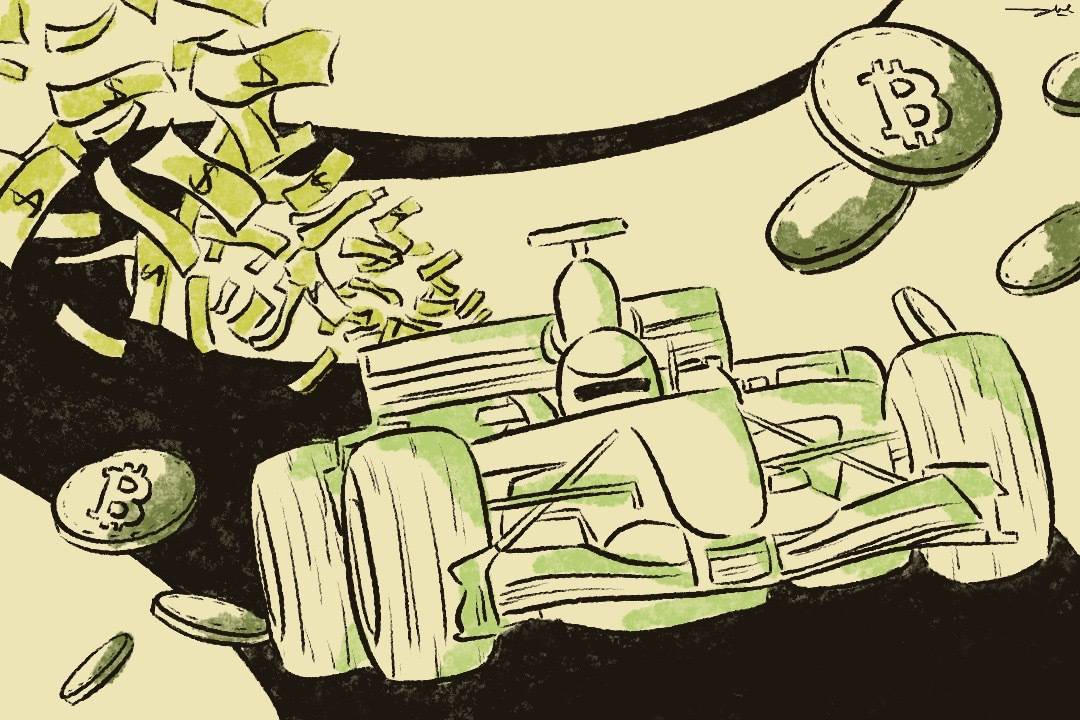Did anyone have Drake “taking the wheel” of a Formula 1 (F1) team on their 2024 bingo card? The year had barely started when the 6ix’s star rapper — and lifestyle partner of cryptocurrency company Stake — announced the Sauber F1 Team would be rebranding to the Stake F1 Team for the 2024 and 2025 seasons. This announcement followed the conclusion of Sauber’s five-year title sponsorship with Alfa Romeo.
This rebranding with Stake — an online crypto casino — marks the latest case of cryptocurrency sponsorship in F1. Cryptocurrency exchanges like OKX and Bybit partnered with McLaren and Red Bull, respectively, in 2022, and Crypto.com has featured at multiple Grand Prix since 2021. Yet, the rise in crypto partnerships should raise some concerning questions as interest in F1 grows — since the Netflix docuseries Drive to Survive came out, viewing numbers for F1 racing events have doubled. This new wave of attention gives these companies a platform that grants them legitimacy that they may not deserve.
So what causes teams like Sauber, now valued at roughly $900 million, to turn to dubious partners like Stake? The short answer: money.
F1 is unique, because in this sport, the car is just as important as the driver. An F1 car already costs at least an estimated 12–15 million USD to manufacture. Despite the $135-million cost cap designed to limit spending on car development and research, teams can run an even higher budget when they factor in money spent on engines, upgrades, and salaries. Evidently, in F1, cash never sits around.
Teams are also awarded a portion of F1’s commercial rights profits on a sliding scale based on championship position. Unfortunately for Sauber, their ninth-place finish in 2023 only awards them $69 million, which is $71 million shy of champion Red Bull, and nine million dollars off eighth-seed AlphaTauri. As such, sponsors are essential to make up the difference between competitors. Entities like Stake, whose revenue was figured by the Financial Times at $2.6 billion, would certainly help — though I think teams and fans should question the morality of partnering with a crypto company.
The Stake F1 Team marks the latest attempt by Stake co-founder Edward Craven to overcome the stigma surrounding crypto and online gambling, through allying with lifestyle partners like Drake and sponsoring Premier League team Everton FC. Yet that stigma is not unwarranted. While investing in crypto is often equated to investing in stocks, the lack of a central authority regulating cryptocurrency’s value means the task of regulating prices falls on its users via their investments and transactions. However, it subjects cryptocurrency to intense price swings in short periods, which, when compared to the flatline projections of the US dollar, makes buying crypto no different from gambling.
If crypto wasn’t volatile enough, its CEOs have frequently been embroiled in scandals that place investors’ money at risk. In November 2022, FTX, the second-largest crypto exchange and sponsor of the Mercedes F1 team, filed for bankruptcy. Its CEO, Sam Bankman-Fried, was arrested a month later and convicted of fraud in November 2023, after $14 billion in customer funds disappeared in the lead-up to FTX’s liquidation. A couple of weeks later, Binance CEO Changpeng Zhao pleaded guilty to breaking US money laundering laws, resulting in one of the largest corporate penalties in US history. Binance is still listed as an official partner of the Alpine F1 Team.
Even Stake is not exempt from controversy. Stake’s operations are mainly run out of Melbourne, yet it’s registered in Curaçao, highlighting the company’s efforts to circumvent Australia’s online gambling ban. Additionally, a lawsuit claims the company encouraged US gamblers to use VPNs to circumvent Stake being banned in some states. Despite all this, Stake now possesses an F1 team, begging the question for the team of whether all the controversy they bring is worth shaving off a few tenths of a second of lap time.
Ironically, Sauber is a team struggling to find their form, with drivers Valtteri Bottas and Zhou Guanyu scoring thirty-nine fewer points overall compared to 2022. However, they must improve, as in 2026, Sauber will become the works team for German manufacturer Audi, who has ambitions to be competitive and fight for wins by 2028.
Considering that Sauber has not finished in the top half of the championship in over a decade, with its facilities understaffed and needing upgrades, the pressure is on to put the pieces in place within the next two seasons so that Audi’s takeover goes smoothly. But when the team’s hopes rest on the shady world of crypto, to me, it raises the question: at what length should we be willing to sacrifice accountability in the face of results?
Editor’s note (February 9): A previous version of this article mistakenly stated that the Sauber F1 Team would be rebranding to the Stake F1 Team for the 2024–2025 and 2025–2026 seasons. Formula 1 seasons take place within the duration of one calendar year, and the deal runs until 2025; the team is rebranding to the Stake F1 Team for the 2024 and 2025 seasons, but not necessarily until 2026.



No comments to display.